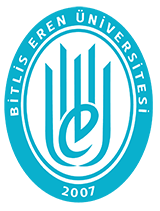HIGH-PERFORMANCE MDMO-PPV FOR POLYMER-BASED LUMINESCENT SOLAR CONCENTRATORS IN SCALABLE ENERGY HARVESTING
Abstract
Luminescent solar concentrators (LSCs) have emerged as promising devices for enhancing solar energy harvesting by efficiently capturing and directing light onto photovoltaic cells. Among the diverse luminescent materials investigated, conjugated polymers stand out due to their tunable optical properties, solution-processability, and mechanical flexibility. Poly[2methoxy-5-(3’,7’-dimethyloctyloxy)-1,4-phenylenevinylene] (MDMO-PPV) exhibits a broad absorption spectrum and high photoluminescence quantum yield, exhibited a peak PLQY of 82%, positioning it as a strong candidate to address the limitations of previously studied polymer-based LSCs. Despite its advantageous optoelectronic characteristics, the use of MDMO-PPV in LSCs remains largely underexplored. This study focuses on the fabrication and optical characterization of MDMO-PPV-based LSCs, evaluating their optical efficiency and benchmarking their performance against established polymeric systems. Key challenges in LSC optimization, such as reabsorption losses and limited Stokes shifts, are addressed through potential molecular engineering approaches and photonic design strategies. Optical performance characterization revealed a maximum optical power conversion efficiency of 2.73%, demonstrating significant improvement over previously reported polymer-based LSC systems. By systematically assessing the optical behavior of MDMO-PPV-based LSCs, this work aims to advance the development of high-efficiency, polymer-based LSCs and support their integration into next-generation photovoltaic technologies. The findings are expected to contribute valuable insights into the design of scalable, cost-effective, and efficient luminescent materials for renewable energy applications.
Collections

DSpace@BEU by Bitlis Eren University Institutional Repository is licensed under a Creative Commons Attribution-NonCommercial-NoDerivs 4.0 Unported License..













